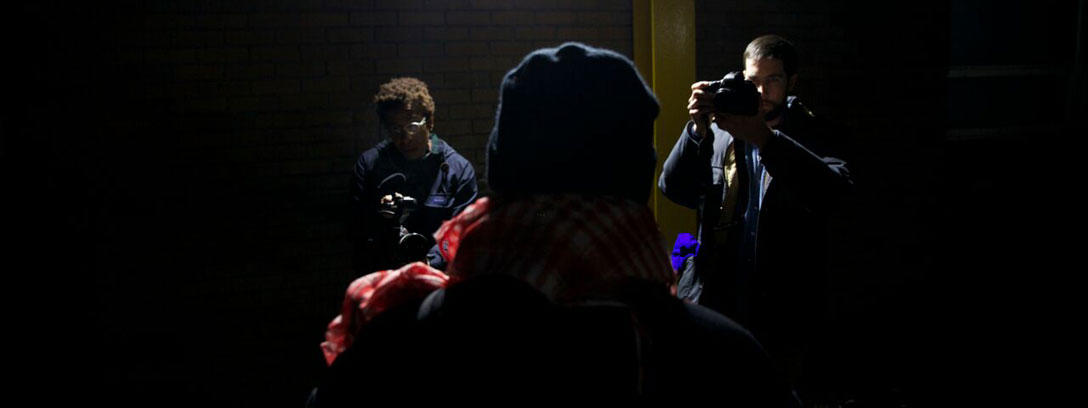Lyric R Cabral & David Felix Sutcliffe
A woman at a recent Q&A for our film (T)ERROR asked us, “Were you afraid?” She didn’t specify, nor did she need to. We knew who, and what, she was referring to. She was asking if we were afraid of our own government.
As journalists, we have explored underreported national security stories for nearly 10 years. During this time, it has been impossible to ignore the FBI’s increasing reliance on untrained, criminal informants, who have played a central role in nearly 50% of all domestic terrorism cases. These individuals can earn more than $100,000 per case, and are instructed to build relationships with persons of investigative interest. Informants typically use a mixture of persuasion, coercion, and financial incentives to induce gullible individuals to engage in or support acts of terrorism. Resultantly, in the vast majority of terrorist plots announced post 9-11, the FBI has provided persons of interest with the means, motives, and materials to facilitate these “crimes.” Although the arrests in these terror stings are often well-publicized, their operational details are not.
(T)ERROR, which won a Special Jury Prize at Sundance this year, is the first documentary to place filmmakers on the ground during an active FBI domestic counterterrorism sting operation. Saeed “Shariff” Torres, an informant who has worked for the Bureau since the early ‘90s, volunteered to provide us with unprecedented access to the inner workings of an FBI investigation in Pittsburgh. The story we documented illuminates the murky ethics of our government’s domestic national security efforts, in real-time, as they unfold.

Saeed, the main character of our film, did not seek out the FBI’s permission to let us film his investigation, knowing that this documentation would be discouraged, and potentially thwarted, by the Bureau’s institutionalized lack of transparency. And yet, because of our access, we are now being forced to pay enormous costs to protect ourselves from potential legal retaliation for presenting this story.
Last week, we launched a Kickstarter campaign to prevent this film from being silenced. The funds we raise will enable us to pay off our existing legal expenses and to secure insurance that will protect us, and our partners, as we release the film. This reporting, like most investigative journalism, was unauthorized. Although we understood the risks at the onset of this project of angering the government, we believed then, as we do now, that the public has a right to know. By sharing this story, we hope to expose the human consequences of our government’s underreported domestic anti-terror efforts, and to trigger a widespread call for transparency, dialogue, and change.
Although Muslim communities have been disproportionately targeted for government surveillance in the wake of 9/11, they are not the only ones. Recent reports have detailed that environmentalists, anti-war activists, and Black Lives Matter leadership have been targeted as domestic extremists. It’s a discomforting reality: voices of dissent increasingly classified as national security threats. Public support and condemnation has never been more critical. However, if journalists are unable to report on sensitive issues without fear of intimidation, how will the public educate themselves? How will we, as a society, make informed decisions?
To find out more about our campaign, and how you can support journalistic freedom, please visit our Kickstarter page. To find out more about this issue, please visit the website of our outreach partner Project Clear (Creating Law Enforcement Accountability and Responsibility).




